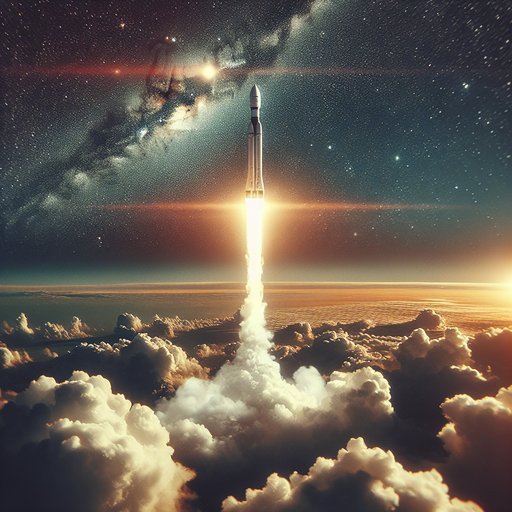
Honda has recently made headlines with the successful launch and landing of an experimental reusable rocket, marking a significant milestone in its aerospace ambitions. This achievement represents Honda's strategic move to become a major player in the space industry, competing against established giants like SpaceX [1]. The successful test marks an important step towards Honda's aim to create a sustainable, data-driven ecosystem in space, driven by the increasing demand for satellite launches [2].
Honda's foray into the space industry signifies a diversification of the company’s technology and innovation capabilities. With a successful test launch and landing under its belt, Honda aims to provide reliable launch services for various payloads. This positions the automaker as a formidable contender in the growing market of satellite launches and space exploration, challenging established aerospace companies [1]. The achievement underscores Honda's commitment to integrating automotive technology into aerospace innovations.
The rapid development in Honda's rocket technology follows the broader trend of increasing demand for satellite-based data systems. As companies look to deploy substantial satellite constellations to enhance global internet coverage, the need for more launch providers becomes imperative. Honda’s reusable rockets, lauded for their cost-effective and sustainable design, are poised to be crucial in this evolving dynamic, enabling more frequent and flexible satellite launches [2]. This development complements ambitions, like Amazon's Kuiper project, aiming to deliver global broadband via satellite constellations [3].
The successful launch marks only the beginning of Honda's long-term vision in space exploration. By investing in reusable rocket technology, Honda is setting the stage for more efficient and environmentally friendly space travel, a move expected to encourage other automotive and technology companies to explore similar opportunities [1]. The reusable nature of Honda's rockets offers significant advantages in reducing the cost per launch, making space access more affordable and widespread. While Honda celebrates this milestone, Amazon faces setbacks with its Kuiper satellite project, postponed due to a rocket booster issue delaying its second satellite launch [3].
This juxtaposition highlights the volatile yet innovative nature of the current space race, with new players emerging and old challenges persisting. Honda's progress provides optimism that advancing technology will soon alleviate such hurdles, ushering in an era of more reliable and frequent launches, ultimately shaping the future of connectivity and exploration [2].
Sources
- SpaceX's Next Big Rival Is ... Honda? Watch the Carmaker's Test Rocket Fly (PCMag.com, 2025-06-17)
- Honda pulls off surprise reusable rocket test launch (DW (English), 2025-06-18)
- Amazon Kuiper second satellite launch postponed by ULA due to rocket booster issue (Biztoc.com, 2025-06-16)
























